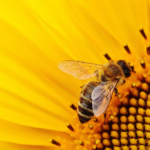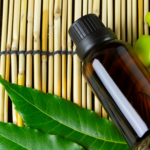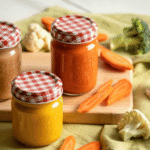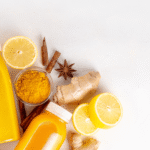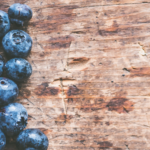How we picked
-
Ingredient integrity: organic botanicals and/or 100% naturally derived aromatics; organic sugar-cane alcohol where applicable
-
Transparency & safety: third-party standards (EWG Verified, “Clean at Sephora,” Cradle to Cradle)
-
Scent quality: modern, wearable compositions (not just “health store” citrus)
-
U.S. availability and accessible discovery sets/rollerballs
1- Henry Rose
EWG Verified, C2C Certified
Why it stands out: Founded by Michelle Pfeiffer, Henry Rose is the first fine-fragrance line to be EWG Verified and Cradle to Cradle Certified. Full note disclosure and rigorous safety screening.
Signature vibes: Clean musk, airy citrus, modern florals (Windows Down; Jake’s House).
Starting price (full size): ~$120 for 50 mL at clean beauty retailers; Sephora often lists select bottles at ~$114 during promos.
Best for: Safety-first shoppers who still want designer-level polish.
2- Pour le Monde
Certified 100% Natural Fine Fragrance
Why it stands out: Long-running U.S. brand focused on 100% natural compositions; charitable tie-ins; vegan/cruelty-free.
Signature vibes: Light floral “Together,” citrus-aromatic “Empower,” sensual “Envision.”
Starting price: $82 (1.7 oz / 50 mL) direct.
Best for: True-natural purists at an approachable price point.
3- Heretic Parfum
Naturally Derived, Organic Alcohol
Why it stands out: Small-batch, provocative naturals blended in organic sugar-cane alcohol; lots of botanical intrigue.
Signature vibes: Lush, sensual botanicals (e.g., Blood Orange, Black Salt).
Starting price: From $125–$165 depending on fragrance/size (Nosferatu from $125; many core EDPs at $165).
Best for: Niche lovers who want bold, plant-based statements.
4- Strange Invisible Perfumes
Botanical, Organic, Hydro-distilled
Why it stands out: Venice, CA atelier crafting botanical perfumes with biodynamic/organic materials and hydro-distilled essences.
Signature vibes: Artful, complex naturals—L’Invisible; Aquarian Rose; Epic Gardenia.
Starting price: From $70 for smaller formats; 50 mL bottles around $210 (example: L’Invisible).
Best for: Connoisseurs who want heirloom-quality naturals.
5- Skylar
Hypoallergenic, Clean & Vegan
Why it stands out: “Clean,” vegan, and hypoallergenic positioning with easy-to-wear crowd-pleasers; wide U.S. retail access.
Signature vibes: Comfort-gourmands and soft musks (Vanilla Sky, Coconut-leaning blends).
Starting price: ~$90 for full-size EDP; travel rollers cost less.
Best for: Sensitive-skin shoppers who want simple, joyful scents.
6- The 7 Virtues
Fair-Trade Aromatics, Clean at Sephora
Why it stands out: Uses fair-trade essential oils (e.g., rose, jasmine); Clean & Planet Positive at Sephora; fantastic value.
Signature vibes: Vanilla Woods, Santal Vanille, Cherry Ambition—layer-friendly crowd favorites.
Starting price: $94 for 50 mL (minis from ~$32).
Best for: Value-driven clean seekers who like gourmand/floral warmth.
7- Abel
100% Natural, Modern Minimalism
Why it stands out: 100% natural fine fragrance built with contemporary aesthetic; genderless; strong U.S. distribution via niche retailers.
Signature vibes: Green Cedar, Pink Iris, Black Anise, Cyan Nori.
Starting price (typical U.S. retail): ~$180 for 50 mL; minis around $33 with credit toward full size.
Best for: Minimalist design lovers who want truly natural formulas without sacrificing style.
Quick Buying Guide (U.S.)
-
If safety standards are your #1: Henry Rose (EWG/C2C) or The 7 Virtues (Clean & Planet Positive).
-
If you want 100% naturals: Abel or Pour le Monde.
-
If you crave niche artistry: Strange Invisible Perfumes or Heretic.
-
If you’re value-minded: The 7 Virtues (often <$100 for 50 mL) or Skylar discovery/duo deals.
Where to sample first
-
Discovery sets/minis: Henry Rose discovery & travel sprays; Abel minis with $33 credit toward a 50 mL; The 7 Virtues and Skylar rollerballs/sets at Sephora.
Pro tips to choose the right natural scent
-
Test on skin (naturals can evolve more than synthetics).
-
Mind concentration & longevity: naturals often wear closer to the skin; layer with a matching body cream or apply to clothing where fabric allows.
-
Check alcohol base: many clean brands use organic sugar-cane alcohol—gentler for some wearers.
-
Allergies? Review note lists (citrus, oakmoss, certain resins) and patch-test.
At-a-glance comparison
| Brand | Ethos / Standards | U.S. Starting Price (EDP) | Good to Know |
|---|---|---|---|
| Henry Rose | EWG Verified, Cradle to Cradle, full ingredient transparency | ~$120 (often ~$114 on promo) | Genderless palette, modern & polished. |
| Pour le Monde | 100% natural fine fragrance, vegan & cruelty-free | $82 (50 mL) | Three core scents; charitable donations. |
| Heretic Parfum | Naturally derived botanicals in organic sugar-cane alcohol | $125–$165 | Edgy, sensual; frequent limited editions. |
| Strange Invisible Perfumes | Botanical, biodynamic/organic, hydro-distilled | Travel from $70; 50 mL ~$210 | Venice, CA atelier craftsmanship. |
| Skylar | Clean, hypoallergenic, vegan | ~$90 | Friendly gourmands; big retail access. |
| The 7 Virtues | Fair-trade oils; Clean & Planet Positive at Sephora | $94 (50 mL) | Fan-favorite Vanilla Woods; easy layering. |
| Abel | 100% natural genderless perfumes | ~$180 (50 mL); minis $33 credit | Minimalist, sophisticated naturals. |
FAQs
Are these “organic” or just “clean”?
True certified-organic fine fragrances are rare; many quality houses use organic alcohol and a high proportion of natural/organic botanicals, while describing themselves as “natural” or “clean.” Always check each brand’s standard pages and note lists. (Examples: Henry Rose—EWG Verified/C2C; The 7 Virtues, Clean & Planet Positive; Abel/Pouro le Monde—100% natural.)
Will naturals last as long as mainstream designer scents?
Often they sit closer to the skin. Try pulse-point application, light spritz on clothing (fabric-safe), or layer over unscented lotion.
Where should I start if I’m new?
Grab a discovery set or mini, wear each scent for a full day, then invest in a 50 mL of the one you reach for repeatedly. (Abel minis include a $33 credit toward full size.)
4. Are organic perfumes safer for sensitive skin?
Generally, yes. Since they avoid synthetic stabilizers and phthalates, many people with fragrance sensitivities find organic or natural perfumes gentler. However, natural essential oils can still trigger reactions — always patch-test before full use.
5. Do organic perfumes last all day?
Organic perfumes often use natural fixatives (like resins or balsams) instead of synthetic stabilizers, so they may wear closer to the skin and fade faster. Longevity varies by blend: heavier base notes (sandalwood, vetiver, amber) usually last longer than light citrus blends.
6. Why are organic perfumes more expensive?
They use high concentrations of natural, often certified-organic raw materials that are labor-intensive to produce (e.g., rose absolute, jasmine, ormysk). Brands also invest in sustainable sourcing, fair-trade partnerships, and smaller-batch production, which increases cost.
7. What’s the difference between “natural,” “clean,” and “organic” perfumes?
-
Organic: Made with certified organic ingredients (like organic alcohol, essential oils).
-
Natural: Focuses on botanicals and naturally derived materials but may not be certified.
-
Clean: Avoids controversial chemicals (like phthalates, parabens) but can still include safe synthetics for performance.
8. How should I store organic perfumes?
Keep bottles in a cool, dark place away from direct sunlight and heat to protect delicate natural ingredients. Avoid storing in bathrooms where temperature and humidity fluctuate.
9. Can I travel with organic perfumes?
Yes, but it’s best to buy rollerballs, discovery sizes, or 10–15 mL travel sprays to comply with TSA rules. Many organic brands (like Henry Rose, Skylar, and Abel) sell travel kits for this purpose.
10. Do organic perfumes smell different from designer perfumes?
They can. Organic and natural perfumes often smell more “alive,” evolving on the skin as real botanicals interact with body chemistry. Designer perfumes tend to be more linear because of synthetics. Many shoppers love the natural evolution of organic scents.
Final word
If your top priority is safety and transparency, Henry Rose is the gold standard. With full ingredient disclosure, EWG verification, and Cradle to Cradle certification, it’s one of the few fragrance houses that gives consumers complete confidence in what they’re putting on their skin.
For shoppers who want great value without compromising on clean standards, The 7 Virtues and Pour le Monde are excellent choices. Both offer beautiful, wearable scents at more accessible price points under $100, making them a smart entry point into the world of organic and natural perfumes.
If you appreciate artisanal craftsmanship and niche luxury, then Strange Invisible Perfumes and Heretic Parfum deliver one-of-a-kind blends. These brands lean into bold, creative, plant-based compositions that evolve uniquely on the skin — perfect for fragrance lovers who want their scent to feel like a personal signature.
For those with sensitive skin or fragrance sensitivities, Skylar provides hypoallergenic, vegan-friendly perfumes designed for daily wear. Their light, approachable scents are easy to layer and ideal for anyone who wants a clean perfume they can reach for every day without worry.
And finally, if you’re looking for 100% natural formulas with a minimalist, modern aesthetic, Abel is a must-try. This brand has mastered the balance between purity and sophistication, creating perfumes that are as stylish as they are sustainable.
In short, the best organic perfume for you depends on your priorities, whether it’s safety, price, artistry, sensitivity, or purity. Thankfully, the U.S. market in 2025 offers outstanding options for every type of perfume lover, making it easier than ever to choose a fragrance that aligns with both your lifestyle and your values.







